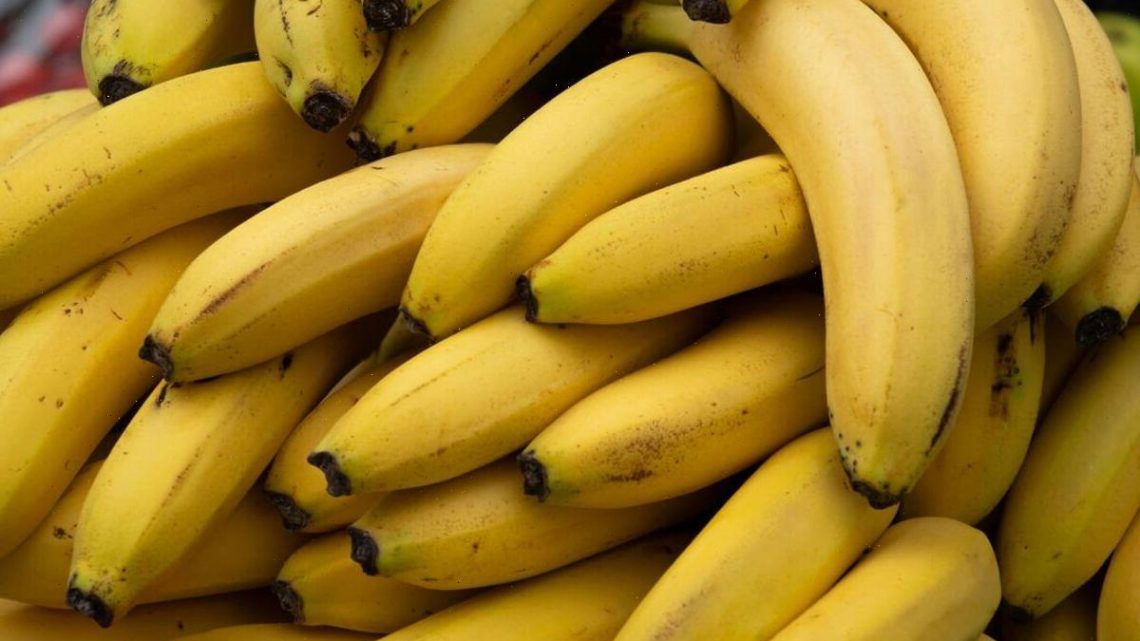
Handy food storage hack for preserving bananas
12/05/2022Food poisoning: Expert gives advice on safe food storage
We use your sign-up to provide content in ways you’ve consented to and to improve our understanding of you. This may include adverts from us and 3rd parties based on our understanding. You can unsubscribe at any time. More info
There are few worse moments in the kitchen than going to pick up a banana and finding it has gone mouldy and gooey. BBC Good Food shared how to store bananas for optimal preservation and longevity.
Most of us store our bananas in the fruit bowl, however according to the experts, this may not be the best way to do it.
Learning how to store bananas properly will save you money long-term, as you won’t need to replace them unnecessarily.
According to BBC Good Food, freezing your bananas is one way to prevent them from going mushy and unpleasant to eat.
“Peel your bananas and pop onto a tray and into the freezer, and freeze until solid.

“Then transfer into a labelled resealable freezer bag, ensuring you remove any excess air before sealing.
“Bananas kept in the freezer will be at their best within six months.”
To defrost, you can pop your frozen banana(s) in the fridge and eat them immediately.
It is also possible to preserve bananas that have already gone a little brown.
Firstly, mash the bananas before portioning them out into labelled resealable freezer bags – two bananas per bag is a good portion size.
“Remove any excess air before sealing, then freeze flat. Be sure to label how many bananas are in each bag. Frozen bananas are best used within six months.”
According to Business Insider, there is one handy product we all have at home that supposedly slows down the process of ripening too – and outside the freezer.
Next time you buy a bunch, separate them into individual bananas and wrap a small section of plastic wrap around each stem.

The plastic wrap will help contain the ethylene gas that bananas produce.
Ethylene is a gaseous plant hormone that partly induces the ripening process of many fruits – including bananas.
The plastic wrap works to trap the gas and prevent it from spreading to other parts of the fruit.
But why do the bananas have to be separated in order for this to work?
When bananas are connected by the stem, this can cause bananas to ripen faster than if they were on their own.
If there are two bananas in the bunch that are farther along in their ripening process, they will spread ethylene gas to the others connected to it.
Of course, this will not stop your bananas from ripening, rather it will simply slow the process down.
This means that they won’t go brown and soggy before you get a chance to eat them and end up in the bin.
Source: Read Full Article

